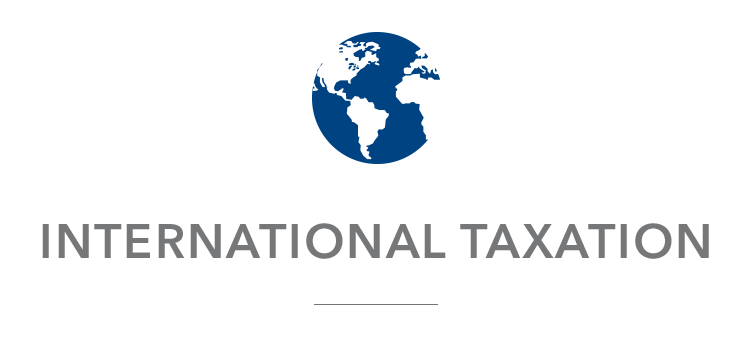Goods exported for re-importation
A departing traveller is not required to declare goods to Customs as per the following:
-
Bona fide baggage; that is, necessary and appropriate wearing apparel and personal effects for his personal use.
-
Goods that have been purchased in the local market and on which no refund of duty, excise duty & taxes have been claimed at time of departure
Identifiable goods (goods with serial numbers, marks and numbers e.g. photographic equipment, laptop etc) which are exported but will be brought back shall be declared in a Customs Office. An appropriate form No. 9 (Registration of goods exported for re-importation) should be filled in accordingly. On the return of the declared identifiable goods, no duties, excise duties and taxes will be levied.
Goods that have been exported temporarily for the purpose of repairs or exhibition, may be re-imported free of duty & taxes, provided the following conditions are fulfilled:
-
The goods have been previously examined or identified by Customs at time of exportation & the proper form has been duly filled in.
-
On re-importation, the original of the registration form needs to be produced to Customs & the re-importation is effected within 2 years from the date of export.
-
If goods are exported for repair, duty, excise duties & taxes remain payable on the cost of repair effected, at the rate of duty applicable on the article.
Drugs Offences
Warnings
Any passenger who unlawfully imports, exports or dispatches in transit any dangerous drugs (e.g cannabis, cocaine, heroine, buprenorphine (subutex), etc) shall commit an offence and shall on conviction be liable to a fine not exceeding one million Rupees and to penal servitude (imprisonment) as provided in the Dangerous Drugs Act 2000.
"Carry this to Mauritius for me."
Never carry anything into Mauritius for someone else unless you are sure it does not contain dangerous drugs.
"They'll never search you - you're not the type they go for."
Do not take a chance. All types of travellers may be searched by Customs authorities. Don't be induced to trade in or transport drugs - you will be taking all the risks while the instigator takes all the profits.
Reporting Suspicions
If you have information or suspicion concerning the importation of dangerous drugs into Mauritius report it through the Customs Hotline.
- Customs Hotline: Voice - 8958
- Fax - 216 7601
Commercial Goods
If you are carrying commercial goods, goods for resale, or goods for use in your business, they will be subject to duty (where applicable) and VAT. These goods should be declared to Customs by proceeding through the Red Channel.
The goods cannot be cleared at the Arrival Hall, they are sent to PATS Autonomous Section (under customs seal) where arrangements (Bill of Entry) are made for a Customs broker/ freight forwarder to clear the goods.
This is done to eliminate bottlenecks at the arrival hall so as to expedite clearance of tourists and non-commercial travellers.
Import Restrictions
Among the various functions of Customs is the screening out of items which may be harmful to Mauritius’ interests. Importation of some goods is prohibited. Others may be admitted only after they have been subjected to treatment, or if they are accompanied by the appropriate documentation. These may be listed as follows:
Agricultural Items
Mauritius is relatively free from exotic pests and diseases.
Importation of plant and products thereof, micro-organisms, soil and products containing soil are subject to phytosanitary control. All such items must be declared to Customs or to the representative of the Ministry of Agro-Industry & Food Security.
The following classes of goods must be declared to Customs. Clearance is required from the above mentioned Ministry prior to release by Customs:
-
Fruits and vegetables
-
All fresh fruits and vegetables
-
Dried fruits and vegetables containing seeds or fruit skin
-
-
Plant, seeds and soil
-
Plant materials including plants, cuttings (e.g. Flower cuttings), roots and bulbs
-
Ornamentals-Live plants, weeds, cut foliage /flowers, fresh cuttings rooted and unrooted
-
Dried flowers of Graminaceous origin, cactus plants, nursery stocks and plants of Araceae family, specimen of plant
-
Seeds (including commercially packaged seeds) and spices
-
Coconuts and coconuts by-products, brooms of plant origin
-
Dried plant material
-
Remedies and medicine containing herbs, seeds, fungi, bark and dried plant material.
-
-
Handicrafts
-
Souvenirs, artifacts and goods made of unprocessed animal products such as rawhide, feathers, teeth, bones and other animal parts
-
Dried flowers arrangements and pot pourri
-
Handicrafts made from or containing seed, pinecones, bark (including Christmas decoration), moss and straw, bamboo, bamboo basket, lay, dried grass.
-
-
Laboratory material
-
Medicinal and animal samples
-
Diagnostic kits and micro-organisms
-
biological specimens
-
-
Equipment
- Equipment used with animals
-
Camping gear, golf clubs, used sports shoes and used bicycles and other items that may contain soil remains
-
Timber
-
Wood with bark
-
Wooden furniture
-
-
Used / Second hand agricultural equipment and spare parts
Contact the Ministry of Agro-Industry and Food Security for more information.
Domestic Pets
Pets may be imported subject to procedures below:
-
Application to be made for "Import Permit" to the Veterinary Service of Ministry of Agro-Industry and Food Security prior to importation
-
Import Permit is issued with specified requirements for compliance
-
Imported "Live Animals" are subject to Customs Formalities and payment of duty and taxes
-
Animals are taken charge at entry point by a Veterinary officer upon arrival for quarantine for a period of one month prior to release
-
If you require any further information on the importation of pets, please contact the Veterinary Division of the Ministry of Agro-Industry and Food Security
- In view of COVID-19 pandemic, all live animals (dog, cat or other pets) imported into Mauritius must be registered as manifested cargo. The import of pets as accompanied baggage or in cabin is strictly prohibited.
Endangered Species
The Convention on International Trade in Endangered Species of Wild Fauna and Flora (CITES) was formulated to regulate and monitor the trade in endangered species. CITES works by placing controls on international trade in specimens of CITES-listed species.
The CITES has a set of rules designed to regulate the export, re-export and import of live/dead animals and plants and other by-products linked to wildlife. It operates with an import/export permit system whereby, trade in CITES-listed species, is allowed only if certain conditions are satisfied.
Animals and plants are classified into three appendices, depending on their degree of endangerment.
Appendix I lists species that are the most endangered among CITES-listed animals and plants. They are threatened with extinction and CITES prohibits international trade in specimens of these species except when the purpose of the import is not commercial, for instance for scientific research.
Appendix II lists species that are not necessarily now threatened with extinction but that may become so unless trade is closely controlled. International trade in specimens of Appendix-II species may be authorized by the granting of an export permit or re-export certificate.
Appendix III is a list of species included at the request of a Party that already regulates trade in the species and that needs the cooperation of other countries to prevent unsustainable or illegal exploitation.
The following plants and species may be subject to CITES, as well as any products manufactured from them, for example, fur, jewellery, ornaments, carvings, feathers and so on.
This list is not exhaustive:
|
|
More information on CITES-listed species is available on the CITES Website
Firearms and Weapons
The importation of firearms is strictly controlled and a Police permit to import is required.
If the firearm or weapon is imported prior to the approval of the permit, same will be detained by Customs at the time of arrival and thereafter handed over to the Police. After approval the importer may collect the firearm.
Importers already holding a valid firearm permit will also have to go through the same procedures, that is, the firearm will be detained by Customs and handed over to Police for verification of the Firearm and the Permit.
It is prohibited to import certain types of weapons such as swordsticks, knuckle-dusters, and any weapon designed to give the appearance of another article.
Medicines
If you are carrying prescription medicines or controlled drugs you should:
-
have a (legible) prescription from your physician advising that the medicine is being used under a doctor’s direction and is necessary for your physical well-being
-
carry the drugs in their original containers
-
have sufficient quantity not exceeding three months supply for prescription medicines or one month supply for controlled drugs
-
for controlled medicines, approval from the Government Pharmacist of the Ministry of Health and Quality of Life is required.
For further information on the clearance of pharmaceutical products please contact the Chief Pharmacist on phone no. 201 1334, 201 1367 and 201 3326 (fax no.)
Money (cash currency, bearer negotiable instruments, precious stones and metals (diamond, gold, jewellery), work of arts or any goods of high value
Any person entering Mauritius with more than 500,000 mauritian rupees in cash or bearer negotiable instruments (BNI), precious stones and metals (diamond, gold, jewellery),work of arts or any goods of high value or its equivalent in any foreign currency is required to make a declaration to Customs.
A Customs officer may request you to complete a Declaration Form for currency/Bearer Negotiable Instruments/ precious stones and metals (diamond, gold, jewellery), work of arts or any goods of high value when you are entering Mauritius. This will usually occur at the Arrival Hall at airport or seaport. Any person making a declaration may be questioned by an officer on the particulars of the declaration and in the course of any questioning, the officer may inspect the person’s travel documents, passport, laissez-passer, tickets and accompanying luggage. The officer may also under reasonable cause, detain and search the person in accordance with Section 132 of the Customs Act 1988. Currency declaration can also be done online by accessing the e-Services. This Interface pertains to the electronic submission of Currency Declaration Forms by inbound, outbound or transit passengers under Section 131A of the Customs Act.
Any person who, when so required, refuses to make a declaration, or makes a declaration which is false or misleading in any material particular, or refuses to answer questions without any reasonable excuse, shall commit an offence and shall, on conviction, be liable to a fine not less than 20% of the whole amount which is subject matter of the offence but not exceeding 2 million rupees and to imprisonment for a term not exceeding 5 years.
Objectionable Articles (Obscene Matter)
Obscene literature and pornographic materials (such as video tapes, films, records, and publications containing obscene matter) are prohibited imports and may be forfeited.
Allowances - Personal Effects
-
Wearing Apparel and Other Personal Effects
Your clothing, toilet articles, personal jewellery (including watches) will be admitted free of duty and VAT, irrespective of whether they accompany you or are sent separately, provided they are:
-
intended for your own use or wear
-
not intended for any other person or persons or for gift, sale or exchange.
The term "personal effects" covers articles which passengers may reasonably require for their personal use during a journey, or which returning Mauritian citizens have acquired in the course of an overseas trip. Commercial quantities of individual items of apparel (including footwear) are not covered by this allowance.
-
-
Alcohol and Tobacco
Passengers must be 18 years or above to be eligible for alcohol and tobacco allowances.
A passenger is allowed to import tobacco, spirit, wine, ale or beer in the following quantities free of duty, excise duty and taxes and may choose ONLY ONE from the following options:
A. The allowance as per the table below shall enter into force as from 01 September 2025.
Option Tobacco (including cigars and cigarettes) not exceeding Spirits not exceeding Wine, ale or beer not exceeding A 250 grammes 1 Litres 2 Litres B 250 grammes 2 Litres NIL C 250 grammes NIL 4 Litres Duty, excise duty and Value Added Tax shall be payable for any quantity imported or purchased in excess of the above allowance.
Purchase of the above allowance by eligible passengers entering or leaving for the Island of Rodrigues:
-
Passengers entering the Island of Rodrigues from the Island of Mauritius shall purchase goods under this measure in a duty free shop situated in the airport or the port in the Island of Rodrigues;
-
Passengers entering the Island of Mauritius from the Island of Rodrigues shall purchase goods under this measure in a duty free shop situated in the airport or the port in the Island of Mauritius;
For passengers arriving from or leaving the Island of Rodrigues to Mauritius, value added tax shall be payable on the goods referred to in the table above.
-
-
Other Accompanied Goods
A passenger may import other accompanied goods up to a value as indicated in tables below. The allowance for the passengers arriving from Rodrigues Island shall be as per Table 1 and that coming from any foreign port/airport as per Table 2.
Table 1 - Duty Free Allowance for Passengers arriving from Rodrigues to Mauritius:
Passport Holder Age Value (not exceeding) Mauritian / Foreign 12 years and above Rs 20,000 Mauritian / Foreign Less than 12 years Rs 10,000 Table 2 - Duty Free Allowance for passengers on International Flights:
Passport Holder Age Value (not exceeding) Mauritian 12 years and above Rs 30,000 Mauritian Less than 12 years Rs 15,000 Foreign No age limit Rs 15,000 The goods must accompany the passenger through the Customs arrival processes.
The goods shall exclude:
- Arms and ammunitions,
- tobacco in any form,wines,spirits and
- merchandise for sale.
-
Tourists Allowances
In addition to passengers’ allowance of Rs 15,000, passengers may also import the following goods without payment of duties and taxes, on:
-
Necessary and appropriate wearing apparel and personal effects for his personal use;
-
Implements, instruments and tools for the professional use of the passenger, and
-
One sporting fire-arm with not more than 50 cartridges provided that the sporting fire-arm is re-exported within the prescribed period, otherwise it will be liable to duty and taxes.
-























